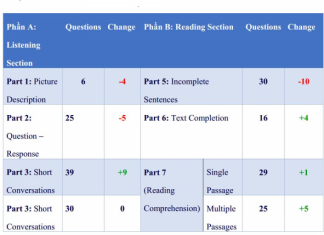- Emerging Trends: A comprehensive look at ghana news today and shifting economic landscapes.
- Economic Performance and Growth Prospects
- Political Stability and Governance
- Strengthening Democratic Institutions
- Social Trends and Challenges
- Regional Integration and International Relations
- Ghana’s Role within ECOWAS
- Technological Advancements and Digital Transformation
Emerging Trends: A comprehensive look at ghana news today and shifting economic landscapes.
The flow of information is crucial in today’s interconnected world, and staying informed about developments in Ghana is increasingly important for businesses, investors, and individuals alike. ghana news today encompasses a wide range of topics, from political and economic shifts to social and cultural changes. Understanding these trends is vital for navigating the complexities of the region and making informed decisions.
This article provides a comprehensive overview of the current landscape in Ghana, exploring key developments and their potential impact. We will delve into economic indicators, political events, and social trends, offering insights into the factors shaping the nation’s future. It aims to provide a nuanced understanding of the opportunities and challenges facing Ghana in the current climate.
Economic Performance and Growth Prospects
Ghana’s economy has traditionally been driven by commodity exports, particularly cocoa, gold, and increasingly, oil. However, recent economic performance has been mixed, with fluctuating global commodity prices impacting revenue streams. Government initiatives aimed at diversifying the economy and promoting local industries are underway, but progress has been slow. Understanding this context is vital when analyzing the current economic state.
A key focus is on attracting foreign direct investment (FDI) to bolster growth and create employment opportunities. Several sectors, including agriculture, manufacturing, and tourism, are being targeted for investment. However, challenges such as infrastructure deficits and bureaucratic hurdles remain. The government is also actively pursuing fiscal consolidation measures to manage debt levels and maintain macroeconomic stability.
| Indicator | 2022 | 2023 (Estimate) |
|---|---|---|
| GDP Growth Rate | 3.4% | 3.8% |
| Inflation Rate | 31.7% | 26.4% |
| Fiscal Deficit (% of GDP) | 6.7% | 5.9% |
Political Stability and Governance
Ghana has long been regarded as a beacon of democracy in West Africa, with a history of peaceful transitions of power. However, recent years have seen increasing political polarization and concerns about governance issues. Addressing these challenges is crucial for maintaining stability and fostering inclusive growth. The strength of Ghana’s democratic institutions is something that many neighboring countries admire and try to emulate.
The upcoming elections are likely to be closely contested, with several key political parties vying for power. Ensuring a fair and transparent electoral process will be paramount for preserving public trust and preventing any potential for unrest. Furthermore, tackling corruption and improving accountability within government institutions remain critical priorities for citizens and international partners alike.
Strengthening Democratic Institutions
The role of civil society organizations and independent media is vital in holding the government accountable and promoting transparency. However, these actors often face challenges, including limited funding and restrictions on their activities. Supporting these institutions is essential for strengthening democratic governance and ensuring that citizens have access to accurate and unbiased information. There is a growing demand for more open governance and freedom of the press, signifying a more active role for citizens in the political process. Ghana’s commitment to these principles ensures that the political discourse is diverse and representative.
Furthermore, investing in the rule of law and strengthening the judiciary are crucial for ensuring that all citizens have equal access to justice. Addressing issues such as case backlog and corruption within the judicial system will enhance public confidence and promote economic stability. A responsive and impartial judicial system is a cornerstone of any thriving democracy, facilitating fair dispute resolution and protecting fundamental rights.
Social Trends and Challenges
Ghana is undergoing significant socio-demographic changes, with a rapidly growing population and increasing urbanization. These trends present both opportunities and challenges for the country. Managing these shifts effectively is crucial for ensuring sustainable development and improving the quality of life for all citizens. The interplay between urbanization, population growth, and employment creation will define Ghana’s future trajectory.
Access to education and healthcare remains a priority, but disparities persist between urban and rural areas. Investing in human capital development is essential for unlocking the country’s potential and fostering inclusive growth. Tackling poverty and reducing inequality are also critical challenges that require targeted interventions and policy reforms. Strengthening social protection systems is essential for protecting vulnerable populations and promoting social cohesion.
- Youth Unemployment: A significant challenge facing the nation.
- Access to Quality Education: Disparities exist between regions.
- Healthcare Infrastructure: Requires continued investment and development.
- Rural-Urban Migration: Impacts infrastructure and resources.
Regional Integration and International Relations
Ghana plays a prominent role in regional integration efforts within West Africa, particularly through its membership in the Economic Community of West African States (ECOWAS). Promoting trade and economic cooperation within the region is crucial for fostering shared prosperity and stability. Ghana’s leadership in ECOWAS is a testament to its commitment to regional development and integration.
The country also maintains strong relationships with international partners, including the United States, the United Kingdom, and the European Union. These partnerships provide valuable support in areas such as development assistance, trade, and security cooperation. Strengthening these relationships and attracting new partners is essential for accelerating economic growth and achieving sustainable development.
Ghana’s Role within ECOWAS
Ghana has been a strong advocate for regional integration, actively promoting initiatives aimed at facilitating trade and investment within ECOWAS. It recognizes that close cooperation with neighboring countries is essential for addressing shared challenges, such as cross-border crime and climate change. Ghana’s commitment to ECOWAS extends beyond economic ties, encompassing collaboration on security matters and promoting peace and stability throughout the region. This demonstrates a deep-seated belief in the benefits of collective action.
Furthermore, Ghana is actively involved in efforts to harmonize regulatory frameworks and promote the free movement of people and goods within ECOWAS. These initiatives are crucial for creating a more competitive and attractive investment climate and fostering economic growth across the region. Through its leadership and engagement, Ghana is contributing to a more integrated and prosperous West Africa.
Technological Advancements and Digital Transformation
The adoption of new technologies is rapidly transforming Ghana’s economy and society. Promoting digital literacy and investing in digital infrastructure are essential for harnessing the full potential of these advancements. The government has launched several initiatives aimed at accelerating digital transformation, but much work remains to be done.
Mobile technology has already had a significant impact, particularly in areas such as financial inclusion and access to information. However, bridging the digital divide and ensuring that all citizens have access to affordable internet connectivity are crucial for maximizing the benefits of digital transformation. Furthermore, fostering innovation and supporting the growth of a vibrant tech ecosystem are essential for creating jobs and driving economic growth.
| Technology Sector | Growth Rate (2023) | Investment (USD Millions) |
|---|---|---|
| Fintech | 15% | 50 |
| E-commerce | 22% | 35 |
| AgriTech | 10% | 20 |
- Invest in broadband infrastructure to expand internet access.
- Promote digital literacy through education and training programs.
- Create a regulatory environment that supports innovation and investment.
- Foster partnerships between government, private sector, and academia.
The interplay between socio-political dynamics and economic growth dictates Ghana’s place in international affairs. A strong commitment to democratic governance, collaborative regional efforts, and a proactive stance towards technological innovation are all cornerstones of achieving sustainable development and bolstering its position on the global stage. Continued investment in its people, infrastructure, and institutions will be essential for unlocking its full potential.
Ghana’s economic trajectory depends heavily on successful navigation of these currents. Focusing on diversification, investment in human capital, and good governance offers the strongest pathway to foster long-term prosperity and a higher quality of life for all its citizens as it navigates a complex global landscape.











